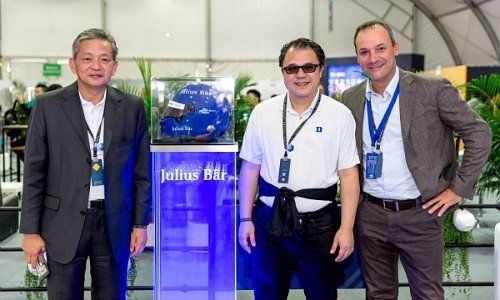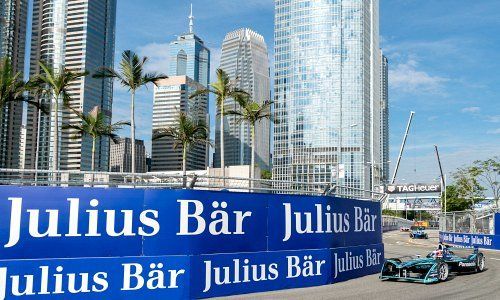Julius Baer is Ready for its Close-Up
After nearly a decade of splashing out on hiring and deals, nearly one-quarter of the Swiss bank’s staff are now in Asia. finews.asia looks at how under region head Jimmy Lee, Julius Baer is preparing its next strike.
Nine years ago, Julius Baer was a solid and stuffy Swiss private bank with few touch-points in Asia. Today, its name is blown up to banner-sized lettering, lining a 1.86 kilometer-long racetrack in Hong Kong. The Swiss bank’s sponsorship of Formula E racing, initiated and forged by its car-loving former CEO Boris Collardi, is meant to mark its spot in Asian finance.
Having absconded to rival Pictet & Cie two weeks ago, Collardi isn't around to see the 11-year culmination of Julius Baer's efforts. The purchase of three private banks from UBS in 2005 for 3.8 billion Swiss francs marked a decade-long period of furious expansion for Julius Baer.
«Are You A Bar?»
In 2006, the bank moved Thomas Meier, a heavyweight Swiss banker, to Singapore to run its Asian business, upgraded its Hong Kong branch to a booking center, and began evaluating whether to enter China (it did two years later, with an office in Shanghai).
Julius Baer, named after the German-Jewish banker who founded the bank, can trace its roots back to 1890 and is distinctly upper-crust in Europe. But in the early days, Julius Baer struggled for recognition in Asia, says regional head Jimmy Lee (pictured below, at left with greater China head David Shick and Swiss head Gian Rossi, far right): «Clients would ask, ‹what does it sell, is it a bar?›,» referring to Baer's umlauted vowel in the original German.

Today, the bank finds it easier to get in the door, in particular with the relatively young private banking market's «old money». After years of spending on hiring as well as big deals like Merrill Lynch’s overseas private bank, Julius Baer now employs nearly one-fourth of its 6,000 total staff in Asia.
The effort has paid off: last year, the bank's profits topped 700 million Swiss francs. One year before, the firm put to rest criminal charges that it helped wealthy Americans cheat on their taxes with a $547.25 million settlement. Julius Baer's profits have been lumpy since the UBS deal in 2006 due to its expansionary stance, but the bank has always been healthily capitalized and paid a dividend and, in 2012, bought back 352 million in its own shares.
- Page 1 of 2
- Next >>



























